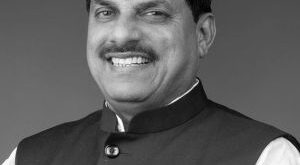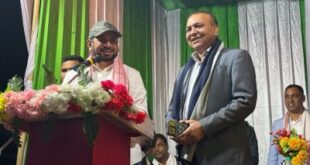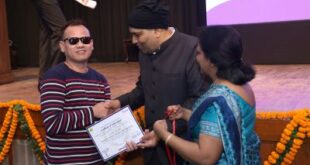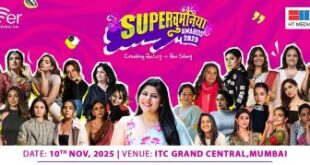Firecrackers are synonymous with Diwali celebrations and it’s difficult to imagine the festivities without them. Most of us grew bursting firecrackers every Diwali, and as such it has been ingrained deep within us. However, times have changed and there’s considerable evidence that pollution resulting from bursting firecrackers is harmful for our health. As kids we were unaware, but as adults, we can now take decisions that would benefit everyone around us. Let’s take a look at some key reasons why we should not be bursting firecrackers during Diwali.
Prolonged exposure to dangerous chemicals: Many people think that bursting firecrackers one day in a year won’t be harmful to their health. However, this assumption is not true. There’s plenty of evidence that shows that bursting firecrackers even for a single day can have long-term health consequences. This is because bursting firecrackers releases dangerous chemicals into the atmosphere. These get deposited in our lungs and bloodstream and are shown to have long-term health effects. Some harmful chemicals produced when bursting firecrackers include lead, cadmium, carbon monoxide, manganese dioxide, magnesium nitrates, zinc oxide, and oxides of sulfur and nitrogen. These dangerous chemicals can be harmful for your health, even when several days have passed after Diwali. These have been linked to various diseases such as respiratory problems, poisoning of the nervous system, chronic obstructive pulmonary disease (COPD), stroke, ischemic heart disease, lung cancer, etc. And the same thing repeats every year, so you can imagine the cumulative adverse health effects of exposure to such dangerous chemicals.
Rising air pollution: A couple of decades back, pollution levels in India were still manageable. There weren’t as many polluting industries and vehicles, as they are now. So, pollution created by bursting firecrackers did not have that much impact. However, things have changed dramatically over the years. Pollution levels are at an all-time high in various cities in India such as Delhi-NCR, Kanpur, Patna, Agra, Gurgaon, etc. The problem is aggravated during the onset of winter, when climate conditions create dense smog. This traps the harmful chemicals released by firecrackers and we continue to inhale it for several days after Diwali. Research data clearly shows that the level of pollution rises dramatically after Diwali every year. If we can avoid the firecrackers, we can reduce the pollution levels that hit an all-time high during pre-winter and winter months.
Noise pollution: Firecrackers not only cause air pollution, but they also lead to noise pollution. Though the honorable Supreme Court has ordered green firecrackers to be used this Diwali, the overall sound pollution will still be high. Studies have shown that noise pollution can lead to various health problems such as high blood pressure, mental health conditions, nervous breakdown, stress & anxiety, insomnia, etc. Noise pollution is especially damaging for the elderly, pregnant women, babies and toddlers, and patients. Noise pollution caused by firecrackers is also harmful for pets and animals in general.
Waste on the streets: Bursting firecrackers leads to huge pileup of waste on the streets. The road cleaning team is already short-staffed in most cities, so the additional waste generated during Diwali takes a long time to clean up. Waste pileup is a breeding ground for various bacteria and viruses, which is why it should be avoided. Waste pileup on streets also goes against the tenets of Diwali, which is essentially a time when we clean our homes and seek to be blessed with wealth and prosperity.
Increased accidents and injuries: Diwali is a joyous occasion, but bursting firecrackers can play spoilsport, as it increases the risk of fire, accidents and injuries. Every year during Diwali, various fires are reported at many locations across the country. Cases of accidents and burn injuries also rise during Diwali. Many people have lost their eyesight due to firecrackers and some fatalities are also reported every year. A grand celebration can easily turn into a nightmare, which is why we should avoid bursting firecrackers during Diwali.
Distortion of our culture: Bursting firecrackers is not part of our culture and tradition. Diwali is known as the festival of lights, and as per tradition, it was celebrated with small oil lamps called ‘diya’. Firecrackers gained prominence only in the nineteenth century, starting with the towns and cities, where people had more money in their pockets. However, now that we know how harmful firecrackers are, we should make efforts to avoid it during Diwali.
Total waste of money:Bursting firecrackers is just like burning currency notes, as it is an unproductive activity. Every year during Diwali, several hundred crores of Rupees are wasted over firecrackers. Just think about so many good things that can be done with this money. For example, we can provide food and clothes to the poor or give the money for the education of homeless children.
The Supreme Court has limited firecracker time to 2 hours on Diwali, which seems to be a welcome step. However, just reducing time for bursting firecrackers may not be enough. We have to think and act on our own and avoid firecrackers completely. It might feel a bit strange initially because we have become habituated to bursting firecrackers. However, with time, we can learn to live without firecrackers. Moreover, with rising air pollution, it’s no longer an option for us. The sooner we quit firecrackers, the better it will be for us and the future of our loved ones.
If Readers also want to share their experience or any other information which could be useful and helpful for others on the same article, then kindly mail us at newspatrolling@gmail.com.
Share and spread the word, so everyone can benefit.
#DontCheatYourself
 Newspatrolling.com News cum Content Syndication Portal Online
Newspatrolling.com News cum Content Syndication Portal Online






